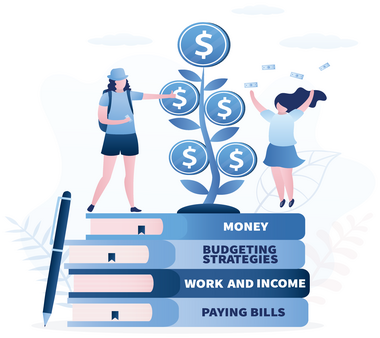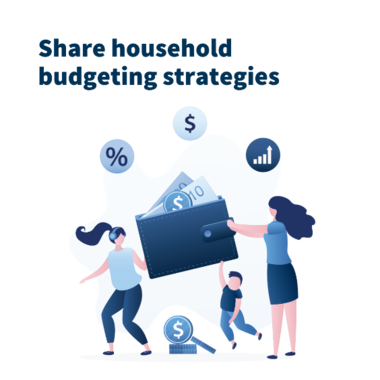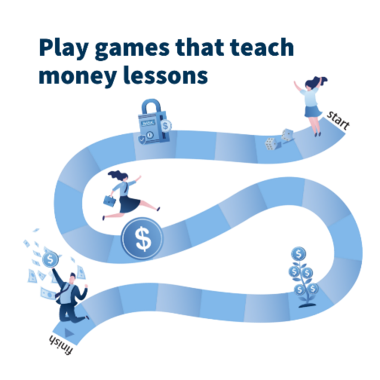
Give Them a Valuable Head Start
Teaching young people about money can help them become more financially independent as they get older. There is research that suggests financial education may be related to lower debt, higher savings, and higher credit scores.
Ways to Approach Young People About Money
Talk about work and income
Your child may see that a relationship exists between work and money. Consider having a conversation with your child about work and how your earnings influence your purchases, where you live, and transportation options for how you get to work. If your child engages in activities like operating a lemonade stand, hosting a bake sale, dog sitting, or babysitting, you can use these occasions to teach them about earning, spending, and saving.
Talk about paying bills or discuss large purchases
Family meetings can be a way of teaching your children about the financial choices you make and why you make them. Try to explain financial obligations using age-appropriate concepts and terminology. The main idea is to teach them the importance of budgets and making responsible choices with money.

By having your child actively participate in a trip to the grocery store, they can see how budgeting relates to shopping. You can also open a savings account at an FDIC-insured institution to teach them about saving money. At an appropriate time, an outing to a local bank so they can see what a bank does and how a bank operates can also prompt conversations about money. Consider having a discussion about online banking services too.
Read books with your child that teach about money
A number of children’s books teach all about earning, spending, saving, and borrowing. These books provide an easy and natural opportunity for questions and answers. Consider checking your local library for suggestions; you may be able to check out books online with your library card. You may also be able to read books online through other free services.

Children can learn about money by playing games, particularly if you play with them. Board games with play money can be great teaching moments. Online games also provide a fun way to teach about money and start conversations.
Teach healthy skepticism of advertising, unsolicited inquiries, and scams
It is important to teach young people how to analyze advertisements; they need to know that “special offers” may not be the great deal they appear to be or may come with strings attached. Even young consumers are targets for identity theft and can be among the victims of scams and rip-offs.
Having open conversations about money with your children, shopping with them on a budget, reading to them about money, and playing games that involve money can have a positive and valuable effect on their relationship with money and their ability to manage finances in the future. Financial education combined with a deposit account at an early age can shape a young person's financial identity, attitudes, and habits in a way that can provide benefits for a lifetime.
Additional FDIC Resources
Money Smart Lesson Plans as Helpful Discussion Guides
For more consumer resources, visit FDIC.gov, or go to the FDIC Knowledge Center. You can also call the FDIC toll-free at 1-877-ASK-FDIC (1-877-275-3342). Please send your story ideas or comments to ConsumerEducation@fdic.gov. You can subscribe to this and other free FDIC publications to keep informed!
